Commonly known as ‘EJM,’ this pre-charge diversion program is an alternative measure authorized by the Youth Criminal Justice Act, to allow for effective and timely interventions with youth who are in conflict with the law on the lowest side of the ‘spectrum.’ This program is only available to youth (12-17) who have committed minor offences, and are deemed as appropriate referrals at the discretion of the Chatham-Kent Police Service. For police to consider EJM, the youth must be a first-time offender/have limited police contact in the past, give their informed consent to participate in EJM, and must accept responsibility for their role in the alleged offence. Types of offences considered for EJM can include, but are not limited to: minor property crimes, assault, harassment, possession (minor amount) of a controlled substance, contrary to the Controlled Drugs and Substances Act (CDSA).
Goals of EJM Program:
- to provide youth the opportunity to be accountable for their actions
- development of empathy for others
- explore underlying ‘roots’ to their negative behaviour
- provide tools to increase pro-social thoughts and behaviours
- create positive ties and give back to their community
- to reduce stigmatization
NOTE:
Restorative Justice Conference/Process may occur (as appropriate) to further involve the community in the process, and to include those parties involved/harmed by the young person’s actions.
Measures can include, but not limited to activities such as:
- Letter of apology
- Community service hours
- Creative project
- Educational programming specific to offence behaviour and/or underlying behaviours (participation in relevant RJCK Positive Strides Programs)
- Restitution to those harmed (victim), as appropriate
- Charitable donation
Not every young person’s experience in the EJM Program will look or feel the same – RJCK strongly values individualizing programs to meet specific needs of our youth clients. Determination of Sanctions for each youth participant are based on a combination of: incident specifics; seriousness of the offence(s); any previous history/contact with the law; the young person’s abilities (and strengths); and (when appropriate) the feedback from involved parties, i.e. those individuals who have been harmed by the young person’s actions, their parents/guardians, and the RJCK Volunteer – a representative of the community-at-large.
Upon successful completion of the EJM Program, the Chatham-Kent Police Service will be notified via a final report; the criminal charges will be withdrawn and the involved youth will not generate a formal criminal record. However, if the youth is noncompliant in the program/does NOT successfully complete the Measures laid out and agreed upon, the file will be returned to Police as unsuccessful, and could result in further action.
This program is funded by the Ministry of Children, Community and Social Services




